Search Results
Showing results 1 to 20 of 29

Artificial Intelligence: The Intelligent Piece of Paper
Source Institutions
This activity explores what it means for a computer to be intelligent and introduces the topic of what a computer program is and how everything computers do simply involves following instructions writ

The Turing Test: Conversations with Computers
Source Institutions
This activity aims to stimulate discussion on the question of whether computers can exhibit “intelligence,” or are ever likely to do so in the future.
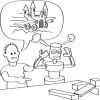
Programming Languages: Harold the Robot
Source Institutions
In this activity related to computer programming, learners give directions to a "robot" (either an adult or another learner) and find out which instructions the robot is able to follow, and how their

Phylogenetics
Source Institutions
This activity lets learners participate in the process of reconstructing a phylogenetic tree and introduces them to several core bioinformatics concepts, particularly in relation to evolution.

Screen Time
Source Institutions
This game asks you a series of questions about how much time you spend in front of a screen, not being active.

What am I?
Source Institutions
In this activity, learners examine nanoscale structures of common things.

Clap Sensor: Build a Sound Sensor Using a Pico Cricket
Source Institutions
This activity requires a Pico Cricket (tiny computer). Learners work on designing and building a sound sensor out of household materials, like plastic wrap and cardboard.

Tiny Particles, Big Trouble!
Source Institutions
In this activity, learners discover why some nanoscale science and technology is done in the controlled environment of a clean room, what clean rooms are like, and how scientists help keep the clean r

Destination Tidepool
Source Institutions
In this activity (page 7 of pdf), learners research tide pool ecosystems, and then create brochures that "advertise" these environments.
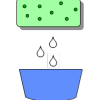
Measurement: It Takes Ten
Source Institutions
In this math lesson, learners practice estimation and measurement skills as they move from station to station calculating length, volume, weight, and area.

Cafe Wall Illusion
Source Institutions
In this fun and interactive online exhibit, the straight lines of a tile wall appear to curve. The learner moves the rows of tiles and changes the color of the grout to achieve the intriguing effect.
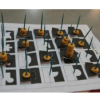
Fruity-Glows: Pictures of Health on a Microarray Canvas
Source Institutions
In this activity (page 12), learners apply the concepts of pixilation and pointillism to the world of biomedical science.
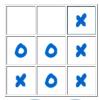
Tic-Tac-Toe
Source Institutions
In this online version of the classic paper and pencil game, learners practice looking ahead to anticipate an opponent's move.
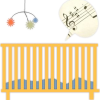
Battle the Baby!
Source Institutions
In this interactive game, learners compare their music-listening skills with that of a three-month-old baby.

Build a Soundscape
Source Institutions
This is a virtual representation of a sound mixer containing pre-looped sounds of animal, insect, and environmental noises.

Multitasking Mania
Source Institutions
In this activity, learners conduct scientific research on multitasking. Learners determine if multitasking with media while doing homework affects their ability to successfully complete the homework.

Sound Mixer: A Multi-track Mixer of Animal Sounds
Source Institutions
This is a virtual representation of a sound mixer containing pre-looped sounds of animal, insect, and environmental noises.

Audio Memory
Source Institutions
In this interactive game, learners will test their memory of animal and insect sounds. Flip over cards, listen to the sound, and try to find the ones that match.
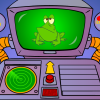
Zap!
Source Institutions
This online game tests reaction time. The learner controls a computer-generated frog, and must press a button as soon as a fly appears on the game's radar screen or can be heard from the speaker.

String Thing
Source Institutions
String Thing is an interactive online game in which learners change a virtual string's tension, length, and gauge to create different musical pitches.
